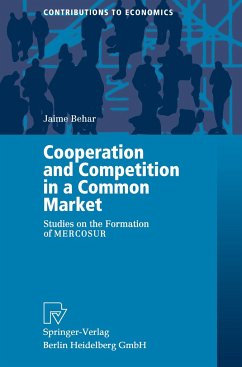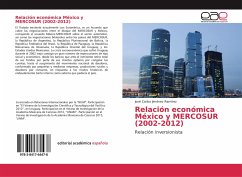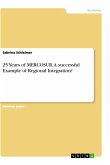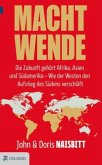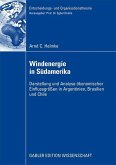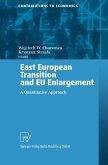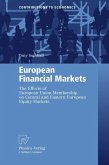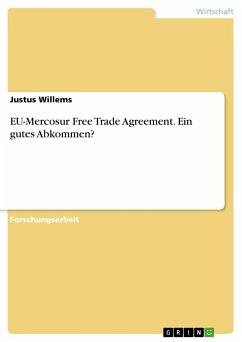This book analyses the economic implications of the most important regional integration agreement in Latin America, the Southern Common Market (MERCOSUR). Accordingly empirical evidence and theoretical arguments on the costs and benefits of MERCOSUR are provided and the effects of the elimination of custom barriers to intra-regional trade on trade patterns, product differentiation and cost efficiency are quantified. Other issues considered are the obstacles to policy coordination, in particular national divergences in income levels and growth rates. As an up-to-date and comprehensive study of trade flows and economic conditions within the MERCOSUR this book will be an essential reading for all those who wish to get behind the immediate arguments about the future of integration in South America and the prospects of further economic and monetary cooperation in that region.
The essays included in this book are the result ofseven years ofresearch spanning the 1990-1997 period. Most of them have been published in scientific magazines or as chapters of books. To the end of this edition, and in order to avoid repetitions, the original texts have been modified, particularly with regard to the titles and introductions ofthe chapters. Chapter two reproduces the article "Economic Integration and Intra-Industry Trade: The Case of the Argentine-Brazilian Free Trade Agreement", published in the Journal of Common Markets (vol XXIX, No 5, pp. 527-552, sept. 1991). Chapter three originates from an empirical study prepared for UNIDO, the United Nations Industrial Development Organization. The analytical framework and the preliminary conclusions of that work appeared in a working paper "The MERCOSUR Pattern of Intra-Industry Trade" (RP No 75, Stockholm: LAIS, 1997). Chapter four was published with the title "Plant-size Effects ofTrade: The Case of MERCOSUR Countries" as a chapter of the book Growth Trade and Integration in Latin America (W. Karlsson and A. Malaki (eds. ), Stockholm: LAIS, pp. 297-319, 1996). Chapter five in tum corresponds to the article entitled "Measuring the Effects of Economic Integration for the Southern Cone Countries: Industry Simulations of Trade Liberalization" as published in The Developing Economies (Vol. XXXIII, No 1, pp. 1-31, mars 1995). Finally, chapter six is the revised and updated version of the paper presented at the First European Congress ofLatinamericanists, which took place at Salamanca, Spain in June 1996.
Hinweis: Dieser Artikel kann nur an eine deutsche Lieferadresse ausgeliefert werden.
The essays included in this book are the result ofseven years ofresearch spanning the 1990-1997 period. Most of them have been published in scientific magazines or as chapters of books. To the end of this edition, and in order to avoid repetitions, the original texts have been modified, particularly with regard to the titles and introductions ofthe chapters. Chapter two reproduces the article "Economic Integration and Intra-Industry Trade: The Case of the Argentine-Brazilian Free Trade Agreement", published in the Journal of Common Markets (vol XXIX, No 5, pp. 527-552, sept. 1991). Chapter three originates from an empirical study prepared for UNIDO, the United Nations Industrial Development Organization. The analytical framework and the preliminary conclusions of that work appeared in a working paper "The MERCOSUR Pattern of Intra-Industry Trade" (RP No 75, Stockholm: LAIS, 1997). Chapter four was published with the title "Plant-size Effects ofTrade: The Case of MERCOSUR Countries" as a chapter of the book Growth Trade and Integration in Latin America (W. Karlsson and A. Malaki (eds. ), Stockholm: LAIS, pp. 297-319, 1996). Chapter five in tum corresponds to the article entitled "Measuring the Effects of Economic Integration for the Southern Cone Countries: Industry Simulations of Trade Liberalization" as published in The Developing Economies (Vol. XXXIII, No 1, pp. 1-31, mars 1995). Finally, chapter six is the revised and updated version of the paper presented at the First European Congress ofLatinamericanists, which took place at Salamanca, Spain in June 1996.
Hinweis: Dieser Artikel kann nur an eine deutsche Lieferadresse ausgeliefert werden.

